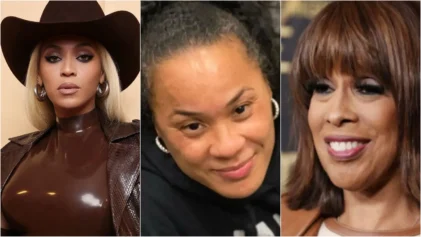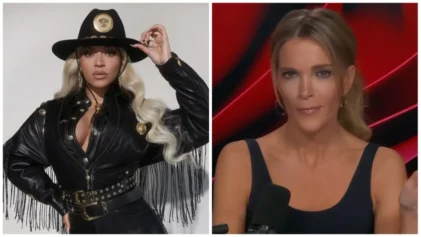
Despite the radio industry quickly losing its traction, when it comes to topping charts or setting Billboard records, radio play becomes a major factor that can leave even the biggest stars lagging behind their less experienced peers.
There is no better example than that of the infamous Beyoncé vs. Rihanna debate that has the power to cause Twitter timelines to spontaneously combust at any given moment.
As Complex Magazine’s Michael Arceneaux explains, the Rihanna Navy and BeyHive are quick to toss Billboard chart facts at one another in their never ending battle of trying to figure out whose pop idol truly reigns supreme.
These facts usually lean in Rihanna’s favor by pointing out that the self-proclaimed “bad gal” has managed to get six singles to the number one spot since Beyoncé had her last number one single back in 2008.
When compared to other artists, Beyonce still seems to lag behind.
Taylor Swift’s 1989 has landed two singles in the number one spot in addition to another one getting in the top 10. Beyoncé’s self-titled album pushed only one single into the top three spot.
Then there is the fact that “Thanks to Lady Gaga, ‘Telephone’ is the best selling song that Beyoncé has featured on this decade,” according to the infamous Twitter account Shady Music Facts.
Arceneaux was quick to explain, however, that such facts don’t truly put any of the artists success in the right context especially when considering that aforementioned dark hole that Black songstresses can rarely avoid.
Although Beyoncé is an internationally acclaimed pop sensation, her music is pushed into the radio hole for R&B and hip-hop and rarely allowed to step outside those borders.
Even the Grammys tend to place the pop songstress in the R&B category despite the fact that the world of pop is Beyoncé’s home. This means her radio play is instantly slashed as she isn’t likely to appear on actual pop stations that have heavy rotations of Katy Perry and Miley Cyrus filling up their hot clocks.
Both of these pop stars, however, have the luxury of also getting air time on “urban” radio stations that cater towards R&B and hip-hop. That’s probably how you came across Katy’s “Dark Horse” hit featuring Juicy J and how you realized it was the former Hannah Montana star singing about standing on the couch with her J’s on in Mike WiLL Made-It’s “23.”
Black stars, particularly Black women, are less likely to obtain the crossover privilege unless they drastically alter their sound to mimic that of their white counterparts that already occupy the pop space—Nicki Minaj’s bubblegum pop hits like “Starships” are a prime example.
It all paints a bleak image of the radio industry for Black female vocalists.
“The decimation of urban radio and its effects on both single and album performance have been chronicled, though no one has since pointed out the obvious,” Arceneaux writes. “If you’re a black woman singing R&B in the 2010s, chances are your greatest success will be on black radio stations and subsequently marginalized. Given Beyoncé’s music has been unapologetically black, this is proof that even the biggest pop star in the world is not immune to the current radio climate not being remarkably supportive of black women singing R&B… I can only imagine how much of a bigger hit ‘2 On’ would’ve been had it gone to someone of [Katy Perry’s] ilk.”
Of course, while Beyoncé may not be topping the charts the way Rihanna’s more generic pop-leaning hits have managed to do, it doesn’t detract from her success.
Even without topping the Billboards pop chart in an entire decade, Beyoncé’s album sales still managed to break records with its impressive numbers despite the album boasting a higher price point than the typical iTunes release and a surprise release.


